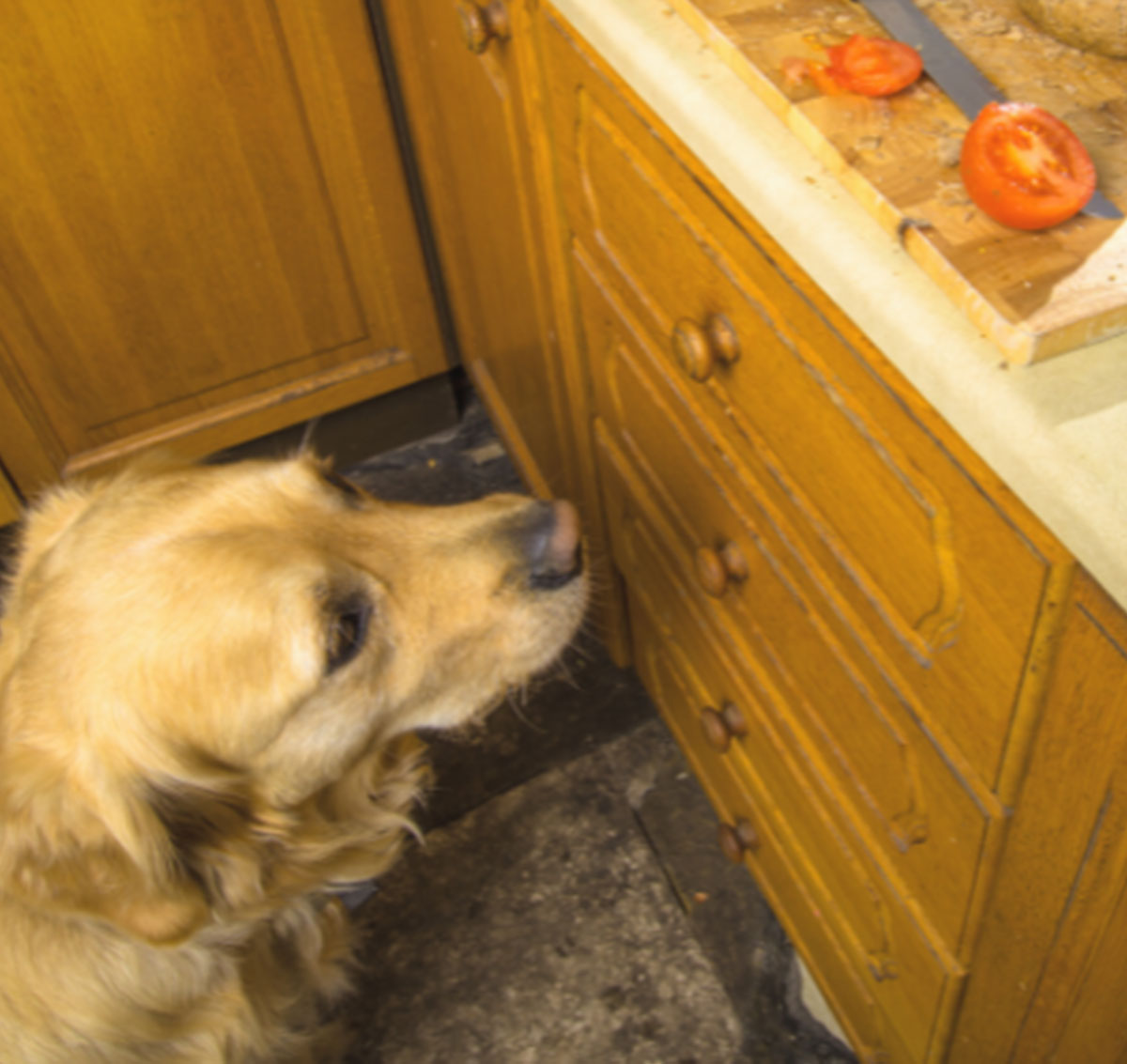Pepper is a seven-year-old female Schnauzer, who is very tolerant when her family decides to dress her up for Christmas (with her little white beard, she makes a delightful doggy Santa).
A couple of days after Christmas two years ago, Pepper seemed quieter than usual. She left half her breakfast, which was very unusual for her. Over the next few hours, Pepper became quite lethargic and started vomiting.
Pepper’s owner Bec became concerned that Pepper wasn’t well, and decided to take her to their regular vet for an assessment.
The vet examined Pepper, and found her to be dehydrated, with a very sore tummy. She was also still nauseous, retching as her tummy was gently palpated. The vet asked Bec if Pepper might have had access to any Christmas leftovers, mentioning a few common culprits, such as:
- Fatty leftovers, such as Christmas ham, turkey or nuts, which can cause gut upset or pancreatitis
- Cooked bones, which can cause gut damage, obstructions or constipation
- Potentially toxic foods that can cause vomiting, such as raisins, grapes, chocolate, coffee or any foods sweetened with xylitol
Bec admitted that on Boxing Day, she had given Pepper a bowl of leftover Christmas ham as a special treat. She was sure that Pepper had not had access to any other potentially dangerous foods.
Given poor Pepper looked so miserable, the vet advised that she be admitted into the hospital for general supportive care and some blood tests, which Bec consented to.
Pepper was admitted to hospital, and was started on an intravenous fluid plan to rehydrate her over the next 8 to 10 hours. She was also given some pain relief and anti-nausea medications.
Pepper’s blood tests showed mild elevation of her liver parameters, and her blood sample was noticed to be unusually cloudy and fatty. An extra in-house blood test to screen for pancreatic inflammation indicated a positive result.
Based on these findings, the vet advised Bec that Pepper was likely suffering from pancreatitis – painful inflammation of the pancreas that can be triggered by a fatty meal. Symptoms of pancreatitis include lethargy, vomiting, diarrhoea and tummy pain. Schnauzers are unfortunately particularly predisposed to this condition.
Luckily, the treatment for pancreatitis is largely supportive, so Pepper’s treatment plan appeared appropriate. The vet and Bec agreed to continue her hospital care overnight, and reassess her in the morning.
The next day, Pepper was much brighter, and was wagging her tail again. She showed interest in food, and was able to eat a small meal of special low-fat food, and keep this down.
After two days in hospital, Pepper was sent home with a prescription digestible, low-fat diet to allow her inflamed pancreas to settle, and another two days of anti-nausea medication and pain relief, and made a full recovery.
Pepper still wears her festive Santa outfit each Christmas Day, but fatty foods like ham are now permanently off the menu. Instead, her family makes sure to treat her with lots of cuddles and pats to ensure a very happy howl-idays!


